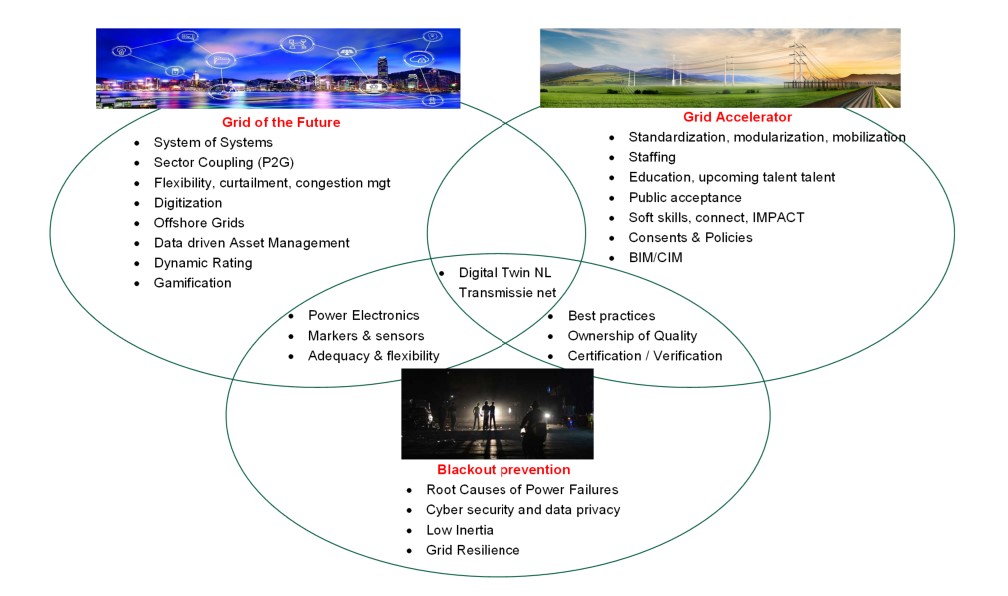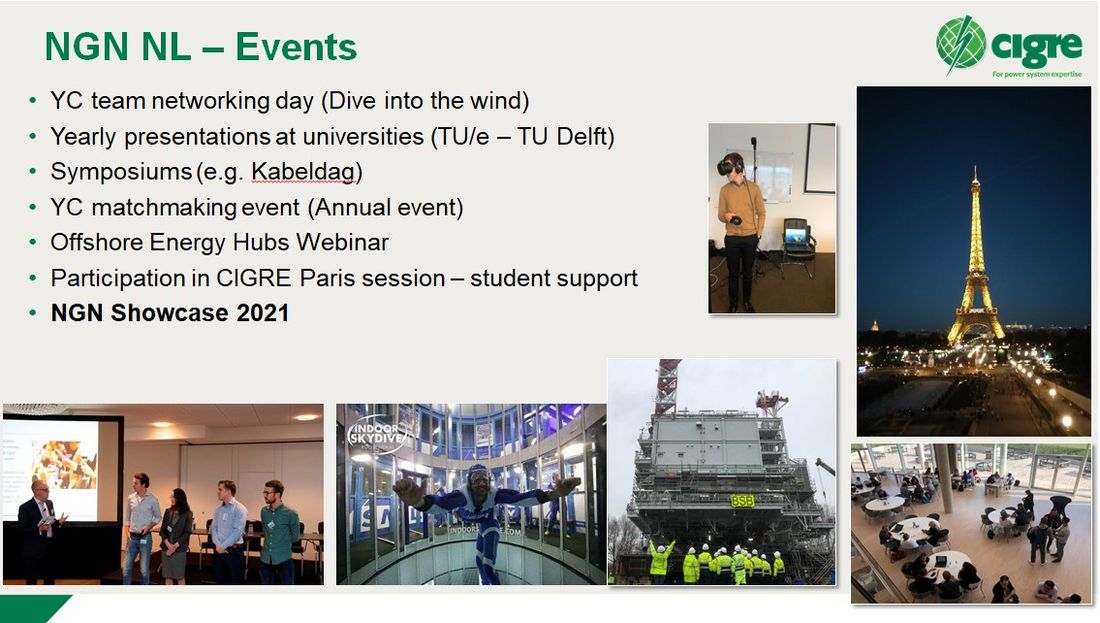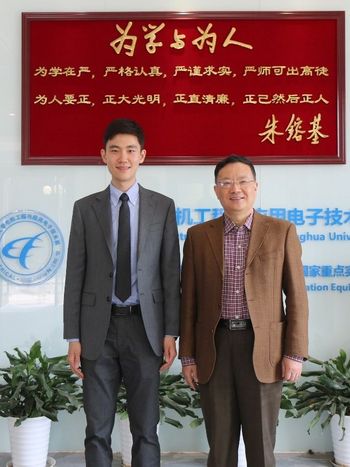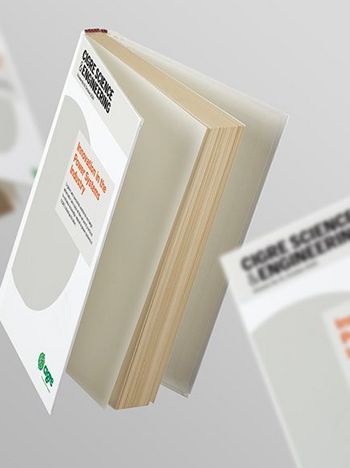Dutch CIGRE C0 kick-off meeting
On the 26th of February 2021 a CIGRE C0 kick-off meeting was organised in the Netherlands. Due to covid-19 circumstances this meeting was held online. CIGRE C0 stands for the combination of the Dutch Study Committees C1, C2, C5 and C6 activities, as these are the committees that take the system perspective. The idea behind this is to join forces and stimulate the exchange of initiatives between these Study Committees . After spending some time in a kind of 'sleeping mode' this kick-off meeting was meant as a restart with an extension of C6 compared to the former C0 setup.

On behalf of the organizers of the C0 kick-off event: Cees Plet (C1), Danny Klaar (C2), Paul Giesbertz (C5), Irina Melnik (C6)
There were 52 participants that attended this meeting with a diverse affiliation to CIGRE: energy market parties, technical universities, industrial manufacturers, consultancies, Ministry of Economic Affairs and Climate Policy, Agency for the Cooperation of Regulators, DSOs and TSOs.
The meeting was introduced by the Chair of the Dutch CIGRE Committee Mr Wessel Bakker, who explained the CIGRE organization and its objectives and emphasizing the added value for our energy business. His statement was clear: the biennial CIGRE Session in Paris is the place to be to meet your peers in the energy business from all around the world.
Participation in CIGRE creates many opportunities:
- Exposure of your CIGRE activities via papers and Technical Brochure publications;
- Worldwide knowledge sharing from the electricity energy business (more than 10,000 Technical Brochures, Papers and Green Books);
- Networking possibilities (3,500 experts worldwide, 250 from the Netherlands)
- The biennial CIGRE Session, where 3200 senior executives and experts and all CIGRE Study Committees join;
- Active knowledge development via participation in the international Study Committees, Working Groups and Taskforces;
- Workshops, seminars/webinars of all Study Committees.
An overview of our main challenges towards the year 2050 was given, where a large number of new generation units especially from solar and onshore and offshore wind are expected to be connected. The transition to a sustainable climate neutral society (an economy with net-zero greenhouse gas emissions) necessitates a strong electricity grid and at the same time energy consumption and efficiency play an important role. Figure 1 shows the key focusing areas: the power system of the future, acceleration of the grid development and blackout prevention.

Figure 1 - Key focusing areas
After presenting an overview of the Technical Brochures that were recently published, the CIGRE Centennial Session 2021 was discussed. The Dutch Key Take Away CIGRE Session 2020, where each Dutch Study Committee presented their main messages, was mentioned as being successful.
The following update on recent Technical Brochures delivered in 2020 was given.
C1
C2
C5
C6
Mr Massimiliano Longhin, board member of the Dutch Next Generation Network (NGN, also called Young CIGRE) gave a presentation of NGN and stressed that their mission is to facilitate a successful transition into the power systems industry for early career professionals and students by providing technical resources and networking opportunities. A full agenda for 2021 events (see Fig. 2) where especially the NGN's showcase for the CIGRE 2021 with 3 Dutch nominations was mentioned. The showcases consists of a 10 minutes presentation of students’ and young professionals’ research work for an international audience. Membership of this NGN is strongly recommended (see also the link: https://www.cigre.nl/mission-young-cigre ). The yearly 'CIGRE Matchmaking event' was mentioned where students and young professionals get the change to meet with the Dutch CIGRE Study Committee chairs.

Figure 2 - NGC NL events
The preferential subjects for CIGRE Sessions 2021 and 2022 for all the C0 study committees were presented and elaborated and the call for possible paper subjects for the 2022 Session was discussed. Striking is that the important topic of 'resilience' is mentioned in many of the Study Committees preferential subjects. It was stressed that the CIGRE Sessions are not just about submitting and presenting papers. Based on the papers a Special Report is written which is the basis for the Session. This Special Report raises questions and delegates are invited to respond by submitting Prepared Contributions.
Plenty suggestions for subjects for possible paper proposals were addressed, for example:
- The Dutch regulation which has got special features related to offshore wind and sector integration and system and market operation;
- The outlook of an infrastructural planning for gas and electricity, the cyber-physical system and resilience, the multi-vendor offshore grid system;
- The Equigy platform which helps balance the system using blockchain technology to access, via aggregators, new sources of electricity from the owners of consumer-based devices;
- A project on probabilistic scenario building for grid investments and another project on new decision support tools to prevent inter-area oscillations;
- The Dutch Energy Act which includes independent aggregators in the market and consumers that can have different suppliers at the same time;
- A project which deals with local energy communities wholesale market and DSO interaction also using blockchain technology;
- New inertia services provided by market parties, and
- Short circuit power changes in the high voltage grid.
For the 2022 CIGRE Session, the Dutch National Committee expects to submit abstracts resulting from joint SC activities.
The participants were made aware of the following new Working Groups in the C0 Study Committees that create opportunities to participate:
- WG C1.45: Harmonised metrics and consistent methodology for benefits assessment in Cost-Benefit Analysis (CBA) of electric interconnection projects
- JWG C1/C4.46: Optimising power system resilience in future grid design
- WG C1.47: Energy Sectors Integration and impact on power grids
- WG C1.48: Role of green hydrogen in energy transition: opportunities and challenges from technical and economic perspectives
- JWG C2/C5.06: The Impact of Market Interventions by System Operators during Emergency Situations
- JWG C4/C2.62/IEEE: Review of phasor measurement unit applications
- WG C5.33: Trading Electricity with Blockchain systems
- C6.41: Technologies for Electrical Railway Distribution Supply Systems
- C6.42: Electric Transportation Energy Supply Systems
- C6.43: Aggregation of battery energy storage and solar PV systems.
Next C0 meeting topics suggested by the organizing committee members were:
- Position and vision papers (European Commission, Ministry of Economic Affairs and Climate Policy, NGOs, consultants, etc.);
- System integration – from concept towards implementation (technical, regulatory, economic and environmental dimension);
- Hydrogen applications (onshore vs offshore, centralized vs decentralized), and
- The necessity of carbon capture technology.
The participants complemented the above list of topics with the following ideas:
- The Equigy initiative;
- GOPACS, which is a congestion management concept developed by the Dutch TSO and the DSOs;
- Local energy communities with wholesale market and DSO interaction also using blockchain technology;
- Multi-terminal HVDC technology, and
- System of systems for the future concerning innovations related to the energy transition (technical, markets and operations, regulation).
The next C0 meeting is planned in Q3 of 2021.
Banner & thumbnail credit: Chris Montgomery on Unsplash





